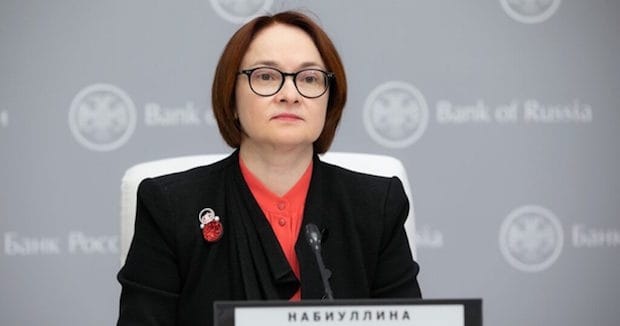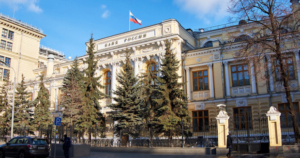
Biggest interest rate hike in 7 years as inflation bites

The Russian Central Bank raised interest rates Friday by a whole percentage point, the biggest upward move in seven years as officials seek to stop price increases spiraling out of control. There are growing worries that — as people anticipate price rises — they will opt to spend rather than save and fuel an inflationary cycle. Given the approaching parliamentary elections, the government is under intense pressure to resolve this issue.
- In a widely anticipated move, the Central Bank raised the key interest rate from 5.5 percent to 6.5 percent. This had been seen as all-but inevitable since the annual inflation rate reached 6.5 percent last month, its highest level since mid-2016.
- Explaining the decision, Central Bank head Elvira Nabiullina said economic growth was accelerating (several sectors apparently are showing signs of overheating), inflationary pressures were greater than the bank anticipated, and inflationary expectations were increasing.
- The key question is how long the inflationary trend will continue. There are many factors contributing to rising prices, but the Central Bank believes the public’s inflationary expectations are critical. Nabiullina’s comments put this reason front and center. And she pointed out that inflationary expectations trigger a self-perpetuating cycle in which, because people foresee prices rising, they stop saving and start spending — which pushes up prices even further.
- Inflationary expectations in June (the most up-to-date figures available), came close to record levels with a median of 11.9 percent (2 percentage points higher than the average over the last three years). For comparison, after the collapse of the ruble in January 2015, the figure was 16.6 percent. The first data for July suggests things are getting worse: the median is up to 13.9 percent.
- Rising prices are unwelcome anywhere, but in Russia it’s a particularly important political question – last month, for example, President Vladimir Putin gave over a chunk of his annual call-in show to a detailed explanation of why bananas from Ecuador cost less than home-grown carrots. The authorities have already introduced several price control measures: retail prices on some goods have been frozen and export tariffs were introduced on food products.
Why the world should care: The Central Bank’s announcement was widely expected and was already factored into the price of government bonds — and it’s still unclear whether Russia is actually heading for a long-term increase in inflation. However, it is clear the authorities are ready to throw the kitchen sink at rising prices in the build-up to parliamentary elections.



